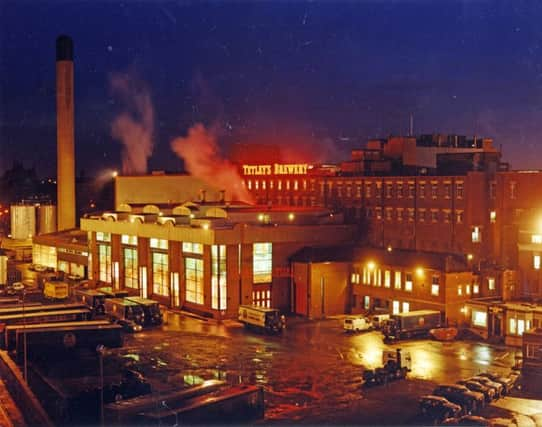How Joshua Tetley’s big gamble paid off


Most people would not give the proposition a second thought. But, in the summer of 1822, Joshua Tetley aged 44, accepted the challenge and countless beer drinkers are probably overjoyed that he did. Over the ensuing years the Joshua Tetley brewing company grew to become a household name, its ales celebrated in countless TV ads, before being absorbed into a large conglomerate.
Born on July 28 1778, the son of a malt, wine and spirits merchant, Joshua Tetley joined his father’s business as soon as he was able to do so. He was the third of four brothers, Isaac, William and James.
Advertisement
Hide AdAdvertisement
Hide AdThe Tetley’s developed trade in London and the north and from 1803 were also local agents for the Imperial Fire Insurance Office of London. The family began a substantial wine making business with distribution across Yorkshire and Lancashire. Amongst their Christmas 1808 wine list is the following: raisin wine, currant wine, raspberry wine, orange wine, cowslip wine and ginger wine.
During his early years, one of Joshua’s jobs was to assist within the family firm and in particular with the fire insurance work. The unsettled economy at home and in Europe during the early 19th century probably encouraged the family to establish a number of business strands. Joshua’s father, William, had been bankrupt in 1800 and obviously did not want to stumble down that road once more.
At 29, Joshua married Hannah Carbutt, who was from an affluent family which included former Mayors of York and Leeds.
The newly married couple’s first family home was in Albion Street where they had five daughters. Moving to Park Square in 1814 they had a boy, Francis, and another daughter.
Advertisement
Hide AdAdvertisement
Hide AdBrewers in Yorkshire in the late 18th century found little success largely due to licensees producing their own beer in brew houses. Eating away at whatever small profits they accrued was the cost of distributing bulky beer barrels. The first recorded common brewery in Leeds is mentioned in Annals of Leeds (1756).
William Sykes established a brewery in Salem Place, Hunslet, Leeds in 1792 and by the turn of the century there were only a handful of brewers noted in a local trade directory.
In 1822 Sykes asked Joshua Tetley to lease the buildings and buy the business of his brewery. Tetley was intelligent enough to understand the pitfalls of the local brewery business and knew the Sykes’ business was not making any money. Thus, comfortable in a successful family business, it was a massive gamble for him agreeing to Sykes’s offer.
Leeds, after the first two decades of the 19th century had passed, was on the precipice of becoming an industrial town of importance, anticipating a building boom and an influx of workers. Tetley may have also thought he could bring to Yorkshire the success a number brewers were enjoying in London. A deal between Sykes and Tetley was confirmed on October 31 1822. The Leeds Mercury on Saturday November 9 1822 carried the following information: ‘J.T assures his friends and the customers of Mr Sykes that he has spared no expense in selecting the best malt and hops, and in making arrangements for carrying on the ale and porter brewing in such a manner, as he trusts will meet their approbation, and ensure him their patronage’.
Advertisement
Hide AdAdvertisement
Hide AdFortunately, the brewery had its own boreholes providing pure water instead of relying on other perhaps polluted sources. When Tetley bought the brewery he moved to Salem Place where another daughter was born, completing the family of seven girls and one boy.
To make the first Tetley brew, a Mr Giles was headhunted to offer his expertise though the brewery’s first year’s accounts were poor. In these very early years, Tetley augmented his income by selling malt to whoever and wherever it was required, as well as sacks of flour. Of course, the brewery business was inter-connected with that of his father’s – William Tetley & Sons.
Tetley benefitted from the Beer House Act of 1830, which allowed anyone paying two guineas to sell beer from their house. As many beer-house keepers were too inexperienced to produce their own beer they bought it from common brewers like Tetley who took a large chunk of this new market in Leeds. In the same decade, William Tetley died and so Joshua took control of the family business.
Taking no part in Leeds civic affairs, Tetley, nonetheless was a man sometimes called upon when an erudite decision was needed on a matter. He was a regular churchgoer and churchwarden. He died on August 26, 1859 and the business was carried on by his son Francis.